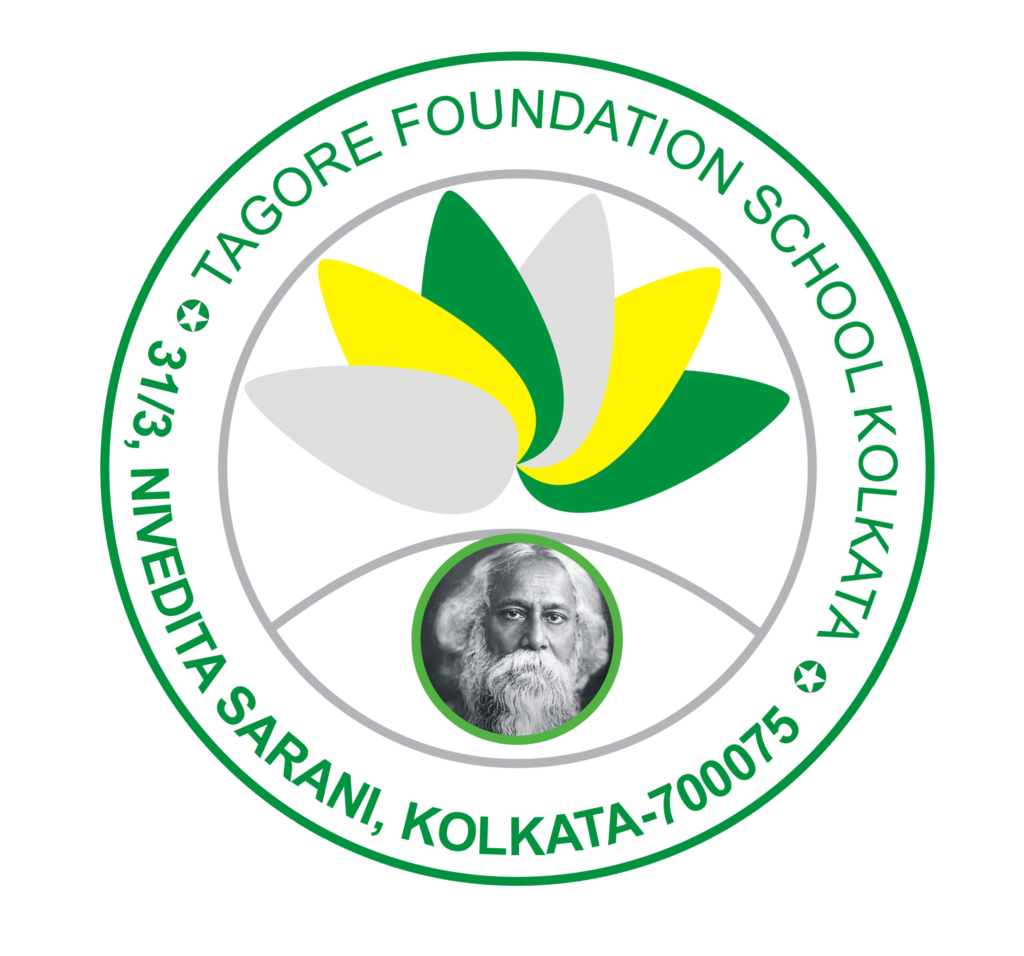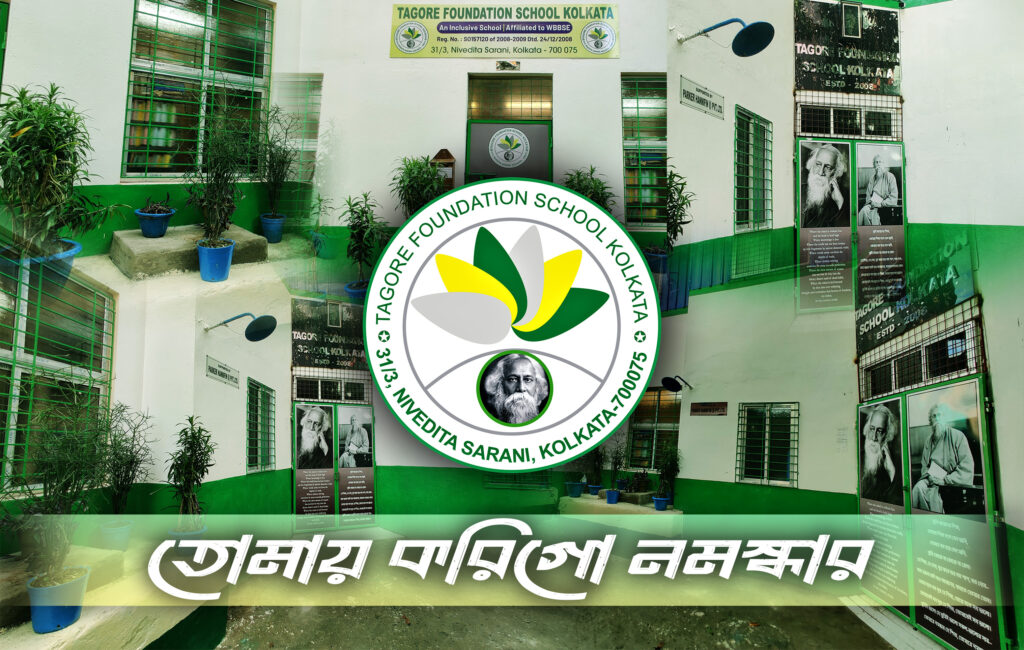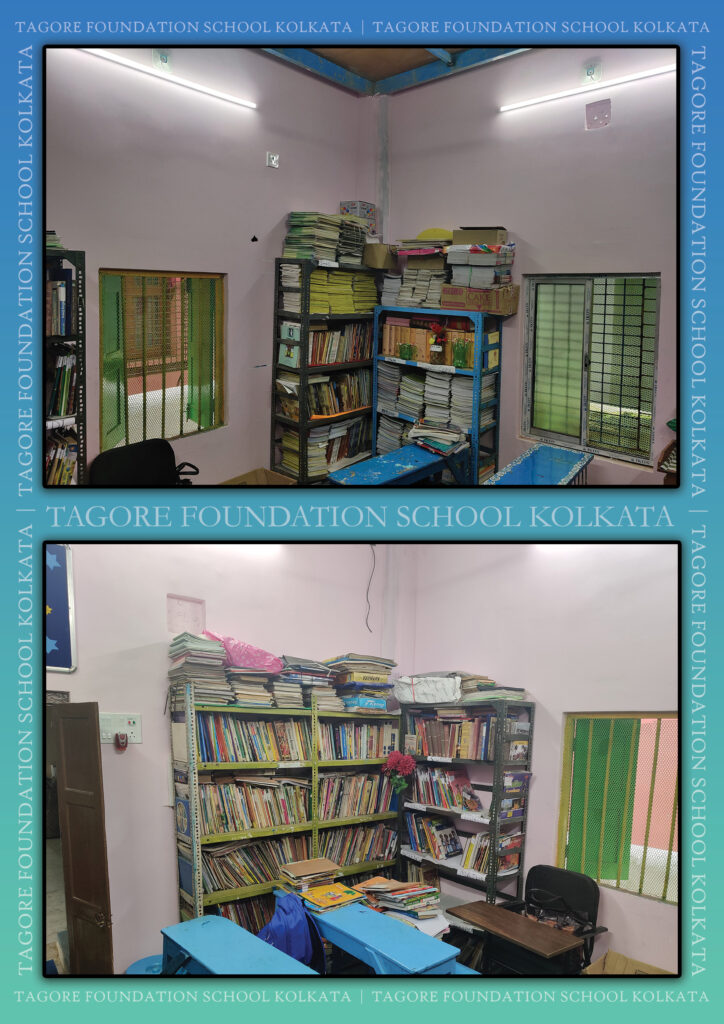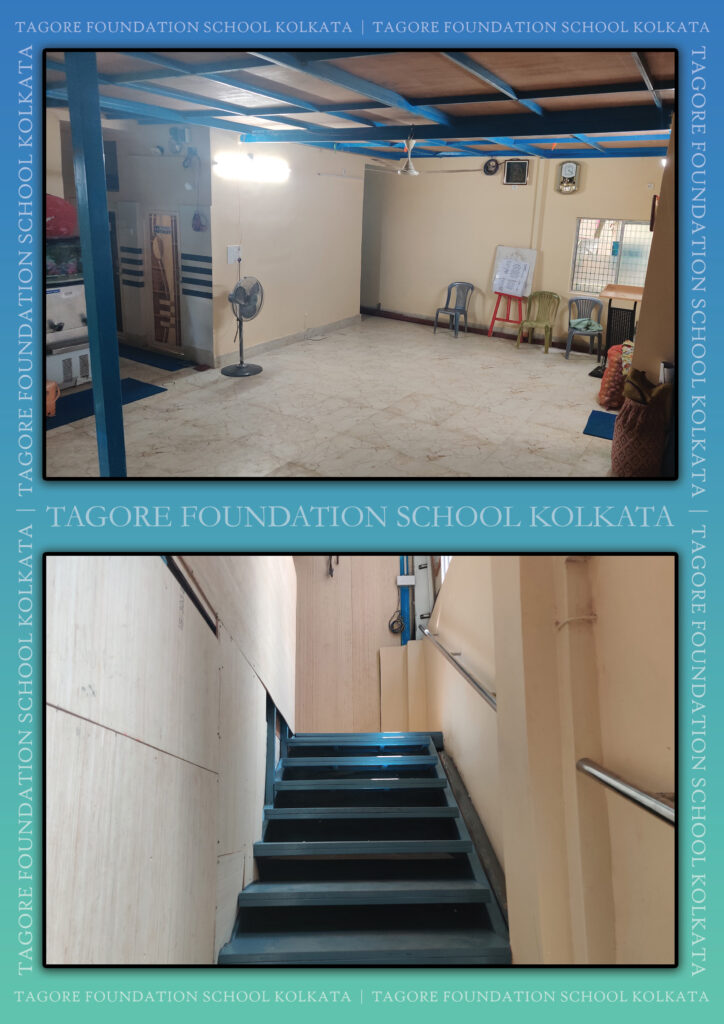

In an effort to seek appropriate educational services for her daughter, Mrs. Srabani Banerjee founded TAGORE FOUNDATION SCHOOL KOLKATA (TFSK) in 2008.
Tagore Foundation School exists to strengthen public school education that is respectful of and responsive to the many cultures, languages and diverse learning styles of TFSK children and youth. We provide expanded opportunities for all students to access knowledge and achieve high standards according to their ability so that all students can realize the great promise of India. Our goals are to:
- Hold high expectations for student success as we assist all students in learning and performing their best
- Make sure each and every student feels welcome and is learning within an environment of mutual respect
- Collaborate with families and other community members in building inclusive schools and communities.
Through its initiatives, TFSK brings much-needed resources, training, support and appreciation to teachers who believe every student can succeed.
In TFSK more than 10 percent of students receive special education services, nearly 20 percent have limited English language proficiency and more than 50 percent qualify for free or reduced-fee meals, an indicator of economic disadvantage.
Tighter accountability measures are asking schools to make a difference with students that have traditionally been left behind. To meet this challenge, schools must be placed where all students can succeed.
If we do not attend to this great need now, a generation of students will come of age without the technical, social and intellectual skills they need to work across differences, find common ground, and compete effectively in world markets. The need for inclusive schools is far beyond giving children a fair stake in a world that we know; it is critical in preparing them to face tomorrows we can only imagine.
[Best_Wordpress_Gallery id=”5″ gal_title=”Gallery 01″]
Our school is an Inclusive School striving to provide mainstream education and vocational training to special children and normal children (some of whom come from under-privileged families) together under one roof.
We follow the Montessori method of education which seeks to develop the natural abilities and interest of the child.
What is Inclusive Education?
Inclusive Education (IE) is a comparatively new approach towards education. In this approach children with disabilities and learning difficulties, learn together with normal children under the same roof. It seeks to bring together all students regardless of their strengths and weaknesses into one classroom or community with the aim of maximizing the potential of all students.
The government of India in its National Education Policy, 1986, recommended as a goal ‘ to integrate the handicapped with the general community at all levels as equal partners, to prepare them for normal growth and to enable them to face life with courage and confidence’.The “World Declaration on Education For All” adopted in 1990 gave further impetus to this concept. Inclusive education denotes that all children irrespective of their strengths and weaknesses will be made a part of the mainstream education.
As a system of education, inclusive education needs to be flexible. The needs of different kinds and different intensities of disabilities are different, and this has to be reflected in the different teaching methods and materials that have to be used in exposing the students to the regular curriculum.
What is Mental Disability?
Mental Disability is significantly subaverage intelligence, impairments in adaptive behaviour which manifests before the age of 18 years.
That is, mentally challenged people are low intelligence and cannot fully adapt themselves to a given situation. Also, the symptoms and characteristics of mental disability can be noticed before the age of 18 years.
There are three important components to consider :
- The individual has an I.Q. score of less than 70, whereas a score of 85 to 115 is considered as average.
- Deficits in adaptive behaviour, i.e. In sensory motor skills, communication skills, self help skills, socialization skills etc.. For example, if a 3 years old child with no physical problems does not walk or a 10 years old child does not have toilet control, it is considered to be a deficit in their adaptive behaviour.
- The developmental period, which is considered to be the period below the age of 18 years.
- Very often a mentally challenged person is confused with a mentally ill person, but they are not the same.
Mentally ill people have normal development of physical and mental abilities. It is a disease that can occur at any age or in any highly educated people. It is mostly curable with medicine.
Whereas mentally challenged is a condition, it cannot be cured. Though with proper guidance and training a mentally challenged individual can learn many skills.
Classification of mentally challenged is done from three angles – medical, psychological and educational. The medical angle is mainly concerned with the cause of retardation. The psychological angle is concerned with the intelligence level of the individual and the education angle is base on the current level of functioning of the mentally challenged person or child.
A major problem that is faced in judging the prevalence of mental disability is the lack of structured and exhaustive survey of the population in different countries. Also, since in many cases a mentally challenged person is not easily recognizable, estimating the number becomes difficult.
ফিরে দেখা

